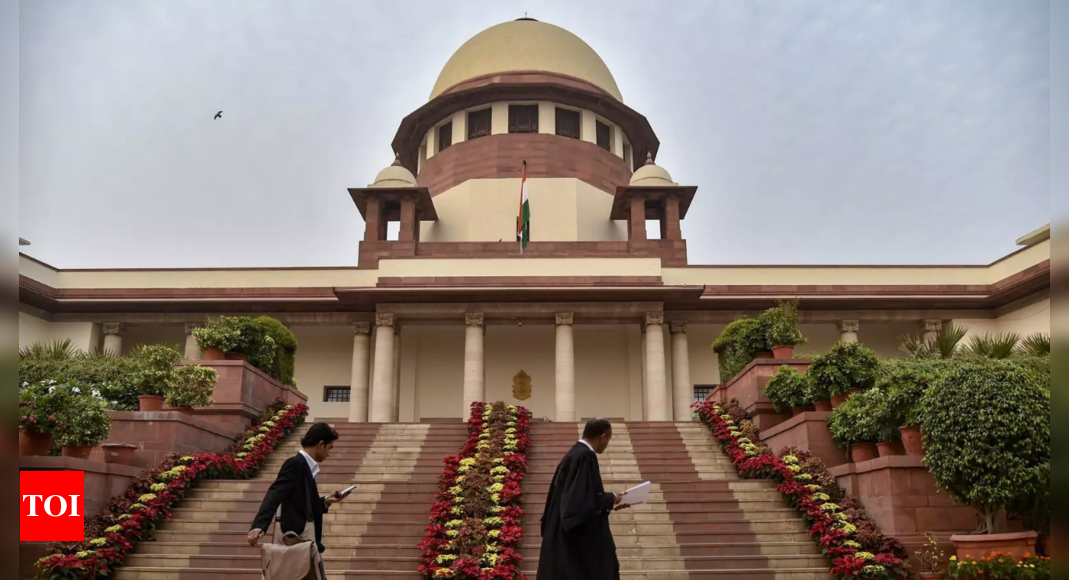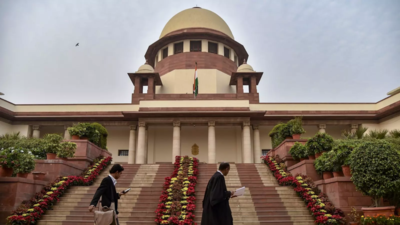NEW DELHI: Congress has moved Supreme Court in support of the Places of Worship (Special Provisions) Act, saying the law was “essential to safeguard secularism in India” which is a basic feature of the Constitution and was needed to ensure communal harmony.
Seeking to intervene in the litigation initiated by Ashwini Kumar Upadhyay, now with BJP, former MP Subramanian Swamy and other Hindu organisations who challenged the validity of the 1991 law, Congress sought outright dismissal of their petitions.
Saif Ali Khan Health Update
Relying on the apex court’s earlier verdicts, including its Ayodhya judgment, it said the court has on multiple occasions held that the focus of the nation must be towards the future and not at attempting to rectify atrocities of the past.
Motivated bid to undermine secularism: Congress’ plea to shield places of worship law
“…The present challenge appears to be a motivated and malicious attempt to undermine established principles of secularism. The applicant seeks to intervene in this matter to emphasise the constitutional and societal significance of the POW Act, as it apprehends that any alterations to it could jeopardise India’s communal harmony and secular fabric, thereby threatening the sovereignty and integrity of the nation,” Congress said in its plea.
The application, filed through advocate Abishek Jebaraj, said the petitions against the Act appeared to have been filed with oblique and questionable motives. “The applicant seeks to oppose the present challenge to Sections 2, 3 and 4 of the Act, on the grounds that the POW Act plays a pivotal role in furthering the right to freedom of religion and protects secularism, which is an established basic feature of the Constitution. The instant petition challenges a legislation that both in form and substance safeguards fundamental rights and the basic features of the Constitution of India, including but not limited to secularism and fraternity,” it said.
The law’s validity has been challenged on multiple grounds, including that it is discriminatory and violative of fundamental rights and the petitioners have sought that Sections 3 and 4 of the Act be declared void and unconstitutional for being violative of Articles 14, 15, 21, 25, 26 and 29 of the Constitution in so far as it seeks to validate ‘places of worship’ illegally made by “barbaric invaders”.
Section 3 of the Act puts a bar on conversion of places of worship and Section 4 prohibits courts from entertaining appeals and challenges to the religious character of certain places of worship and says the religious character of a place of worship as existing on Aug 15, 1947, shall continue to be the same.
Countering the petitioner, Congress said their contention was patently flawed and POW Act was not in contravention of any fundamental rights .




